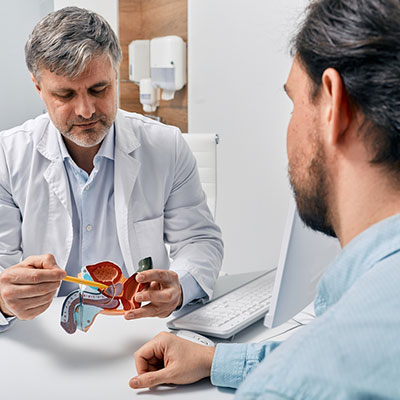Ejaculation disorders are a group of conditions that affect a man's ability to control or experience ejaculation during sexual activity as per Male Infertility clinics in Karimnagar. These disorders can significantly impact sexual satisfaction, fertility, and overall quality of life. Common types include premature ejaculation (ejaculating too quickly), delayed ejaculation (taking a long time or being unable to ejaculate), and retrograde ejaculation (semen flows backward into the bladder). The causes can be varied, including psychological factors like anxiety or depression, physical conditions such as nerve damage or hormonal imbalances, and certain medications. Treatment options depend on the specific disorder and underlying cause, and may involve therapy, medication, or lifestyle changes.
As per Infertility Specialist in Karimnagar, Dr. Nayani Enjamoori, Retrograde ejaculation is a condition where semen enters the bladder instead of exiting the penis during orgasm. Management depends on the cause and the individual's desire for fertility. If no treatment is needed, observation is sufficient. If the cause is medication, stopping or switching to a different drug might resolve the issue. For fertility concerns, techniques like sperm retrieval from urine or assisted reproductive technologies can be used. In some cases, medications can help tighten the bladder neck to prevent semen from entering the bladder. Surgical options are rare and typically considered only in specific situations.

For cases caused by medication, adjusting or switching the drug can often resolve the issue. If nerve damage is the culprit, there are no direct treatments to repair the nerves, but assisted reproductive technologies like sperm retrieval from the bladder can help with fertility. Alpha-adrenergic agonists like pseudoephedrine or imipramine can sometimes help tighten the bladder neck and prevent retrograde flow, although their effectiveness varies. Surgical interventions for Male Infertility Treatment in Karimnagar are rare and typically reserved for specific structural issues. Ultimately, the best treatment depends on the underlying cause and the patient's desire for fertility.
